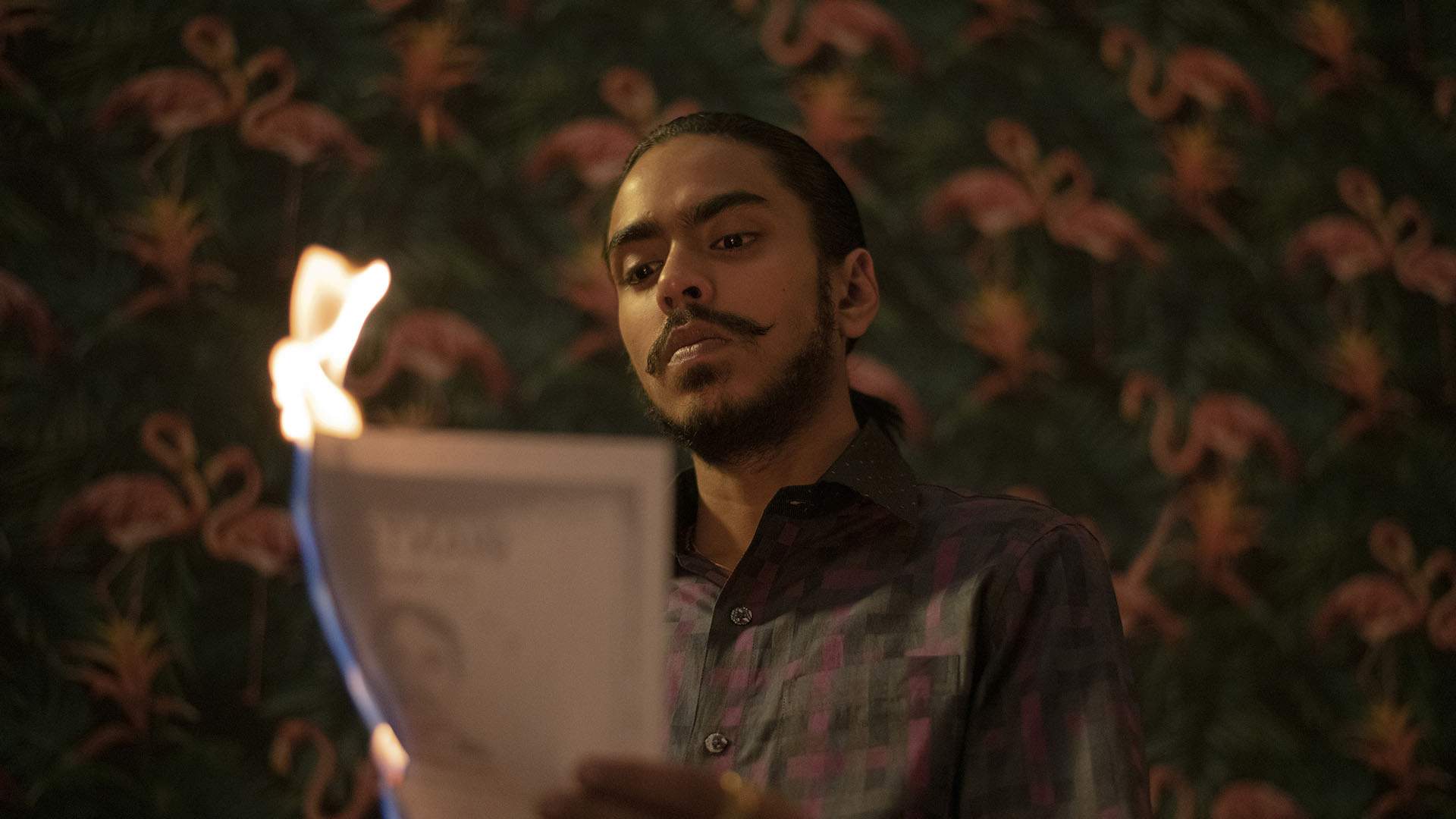The White Tiger
This riveting film adapts the Man Booker Prize-winning novel of the same name into a smart and scathing rags-to-riches thriller.
Overview
UPDATE, February 8, 2021: The White Tiger is available to stream via Netflix.

Adapted from Aravind Adiga's 2008 Man Booker Prize-winning debut novel, The White Tiger shares an animal metaphor in its name. It works it into the story, obviously, and mentions it in dialogue as well. As a boy, after proudly demonstrating that his reading abilities eclipse those of his classmates in his poverty-stricken village, young Balram Halwai (Harshit Mahawar) is likened to the titular jungle cat by a teacher. He's "the rarest of animals that comes along once in a generation," he's told. That statement arrives within the movie's opening minutes and is meant to linger over the film, which it does. That said, another animal metaphor, also uttered early but pondering roosters and coops, truly cuts to this biting picture's core. Like poultry in a cage awaiting slaughter, India's poor are kept in their place as servants, explains Balram (Adarsh Gourav, Hostel Daze) as an adult. At the mercy of cruel and ruthless masters, the country's workers are well aware that they're being treated thoughtlessly at best, and watch on as everyone is stuck in an unending cycle of drudgery. But, ever-dutiful at every moment, they're unwilling to break free or even mildly defy their employers.
That's the compliant life that Balram is supposed to lead, as he notes in the always-pacy, often-winking narration that drives this smart and savage thriller. Balram's existence does play out that way, too, at least for a time. He ingratiates his way into a driver position for Ashok (Bollywood star Rajkummar Rao) and Pinky (Baywatch's Priyanka Chopra Jonas), the American-educated son and New York-raised daughter-in-law of the rich landlord (Mahesh Manjrekar, Slumdog Millionaire) who owns his village and demands a third of all earnings from its residents. But The White Tiger starts with a car accident outside Delhi involving Balram, Ashok and Pinky, then unfurls in flashbacks from an unapologetic Balram in the future. As a result, it's immediately apparent that he won't always be kowtowing to those considered above him in his country's strict caste system. It's also instantly evident that his tale, as cheekily told via a letter penned to 2003–13 Chinese Premier Wen Jiabao, will take the audience on quite the wild journey.
Balram's plan to work for the man who rules over his home stems from his burning ambition to enjoy a life far removed from his struggling childhood. So does his scheme to supplant the family's first driver, as well as his efforts to later forge his own path. When he is given the white tiger label as a kid, he is also advised that "any poor boy in any forgotten village can grow up to become Prime Minister of India". Politics isn't on his agenda, though. During his time with Ashok and Pinky, he starts thinking bigger. He doesn't just want to win "a million-rupee game show" either — the film's wink to fellow rags-to-riches saga Slumdog Millionaire. As viewers watch Balram evolve from an attentive servant to the self-made entrepreneur who unfurls the movie's twist-filled tale with a sense of mischievous glee — and a clear feeling of accomplishment, too — one truth haunts every moment: that the vast chasm between the wealthy and not-so has wide-reaching consequences, and not just those that the rich, powerful and blinkered foresee.
The White Tiger's framing device is a little clumsy, and its overt, blackly comic observations about the well-off taking advantage of everyone they consider inferior definitely aren't new. Nonetheless, this is still a ferocious, compelling and entertaining film with something sharp and accurate to say, and an engaging way of conveying its central perspective. As long as the world remains beholden to the few at the expense of the many, eat the rich-style tales will never get old — Oscar-winner Parasite certainly felt anything but — and this one also skewers globalisation and its ramifications, especially as new technologies are supposed to be bringing everyone closer together. Thanks to 2005's Man Push Cart, 2007's Chop Shop and 2015's 99 Homes, Iranian American writer/director Ramin Bahrani is no stranger to street-level stories about everyday folks trying to survive and thrive under capitalism's boot, or to the twisted power dynamics that can ensue in society at large and in close quarters. Accordingly, he's a perfect fit for the material here. Whether he's focusing on a ponytailed, moustachioed Balram as he narrates away, or following the character from dusty shacks and crowded markets to the basements of Delhi's sky-high apartment blocks, Bahrani brings a constantly probing eye to Adiga's tale in both a storytelling and visual sense. (He's was also one of the author's college classmates.)
Also ideal is Gourav, so much so that it's almost impossible to imagine the movie being as captivating without him, or as slick yet scathing. The actor is in excellent company, with Rao and Chopra Jonas each finding multiple layers in their characters' lives of privilege, and their eagerness to regard Balram as a friend while it suits — but, as a bright-eyed but still calculating young man trying to work his way up, and then as a cynical experienced hand who has seen much, endured more and knows how he wants the world to work, Gourav is electrifying. It's a performance that's bound to catapult him into other high-profile roles, and it's also the likeable and empathetic yet also hungry and slippery portrayal this rollercoaster ride of a story hinges upon. Or, to put it in Balram's words, Gourav plays his part as "straight and crooked, mocking and believing, sly and sincere, all at the same time", and it's never less than riveting.
Top image: Tejinder Singh Khamkha/Netflix.





